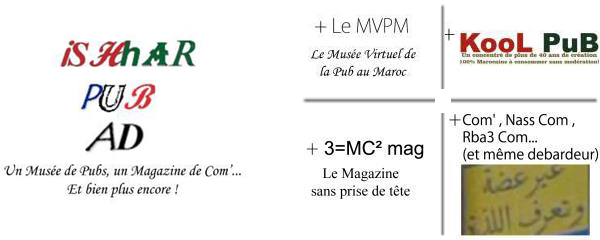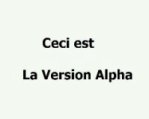Ki ban likoum bhhal un documentaire de plus, walakine had le(s) documentaire(s) ki khla3 ! croyez moi, ma 3amarni tkhla3t autant about today's technology, bhhal kifma tkhla3t aprés que j'ai visionné hadchi...
Le documentaire "Google and the World Brain"... à ne rater sous aucun prétexte !
74 min
World Brain suit les pérégrinations d'un groupe de chercheurs qui tente de survivre dans la forêt avec Wikipédia. Au contraire des rêves de déconnexion, ils quittent tout, sauf la connexion. Ils utilisent la forêt comme une manière de se relier au réseau.…
World Brain propose une excursion à travers différentes formes de folklore de l’internet comme un mythe : data centers, magnétisme animal, la vie intérieure des rats, la connexion des chatons et des pierres dans la Noosphère. Le film détourne les codes de la restitution documentaire ou de la fiction, pour osciller entre l'expérience onirique et la simulation.
L'émergence d'un réseau numérique mondial fondé sur la réduction absolue du vivant en données pose la question du lien social et politique à venir. La socialité en réseau n’est-elle pas condamnée à la pulvérisation ? Dans un monde totalement numérisé, l’homme lui-même n’en est-il pas remis au statut d'hypothèse ? N'y a-t-il pas un paradoxe entre la nature fragmentaire des données et la politique du lien que prônent les adeptes de la connexion globale ? L’hypothèse qui se dessine dans le projet World Brain n’est ni le réseau, ni son expansion que l'on sait inévitable, mais l'humanité elle-même.
World Brain propose une excursion à travers différentes formes de folklore de l’internet comme un mythe : data centers, magnétisme animal, la vie intérieure des rats, la connexion des chatons et des pierres dans la Noosphère. Le film détourne les codes de la restitution documentaire ou de la fiction, pour osciller entre l'expérience onirique et la simulation.
L'émergence d'un réseau numérique mondial fondé sur la réduction absolue du vivant en données pose la question du lien social et politique à venir. La socialité en réseau n’est-elle pas condamnée à la pulvérisation ? Dans un monde totalement numérisé, l’homme lui-même n’en est-il pas remis au statut d'hypothèse ? N'y a-t-il pas un paradoxe entre la nature fragmentaire des données et la politique du lien que prônent les adeptes de la connexion globale ? L’hypothèse qui se dessine dans le projet World Brain n’est ni le réseau, ni son expansion que l'on sait inévitable, mais l'humanité elle-même.
VF https://www.arte.tv/fr/videos/050970-001-A/world-brain/ Visionnable jusqu'au 04 Janvier 2022
VO https://archive.org/details/GoogleAndTheWorldBrain_201611 Visionnable et Téléchargeable en Libre tout le temps
Subject: Anyone who ever used Google books should watch this
Very inspiring. I especially remember the amount of fluster in the monk's response when he was asked:” What if Google use all these books for commercial benefit?" He was clearly caught off guard by this question since commercial benefit was not something he would/should have concerned- I guess.
If you say well, making books accessible to everyone is such an honorable mission so what Google is making a fortune out of it? What if the data they collected could feed back to the advertising? To monopoly to certain out-of-printed books, thus certain knowledge? Or to the government? Not to mention Google's dodging all the questions by addressing a policy called Fair Use.
This documentary poses more question than it answers. And that's only reasonable. Living in the information age as we are, this kind of debate/lawsuit is only the beginning. At least it informs us: that's something we need to be thinking about instead of just trending with.
Google and the World Brain is a 2013 documentary movie about the Google Books Library Project directed by Ben Lewis, produced by BBC, Polar Star Films and Arte. The main focus in the plot is on copyright controversy caused by the project that resulted in Google Book Search Settlement Agreement. It features interviews with many figures concerned, which include German chancellor Angela Merkel and Creative Commons founder Lawrence Lessig.
The movie has received several awards at festivals.
See also
- Google Books
- The Virtual Revolution — 2010 BBC film about Internet in whole
References
External links
The most ambitious project ever conceived on the Internet: Google's master plan to scan every book in the world and the people trying to stop them. Google say they are building a library for mankind, but they also have other intentions.
Director: Ben Lewis
Stars:
Brendan Price, Nicolas Chapman, Molly Malcolm |
Storyline
The story of the most ambitious project ever conceived on the Internet, and the people who tried to stop it. In 1937 HG Wells predicted the creation of the "World Brain", a giant global library that contained all human knowledge which would lead to a new form of higher intelligence. Seventy year later the realization of that dream was underway, as Google scanned millions and millions of books for its Google Books website. But over half those books were still in copyright, and authors across the world launched a campaign to stop them, climaxing in a New York courtroom in 2011. A film about the dreams, dilemmas and dangers of the Internet, set in spectacular locations in China, USA, Europe and Latin America. Written by Polar Star Films




One could see how smaller, niche collections might swallow the pitch on how Google's mother-of-all-xerox can enable whole world access to their tomes. And that's the dilemma -- access is a good thing, but at the expense of stiffing copyright owners. The unrealization of compensation for copyrighted material is one of publishing's most enduring plights.
The European response in the movie was pro-writers/copyright owners and ultimately against Google's questionable copyright actions. The Euro response seems to be the thoughtful and correct one; the Google opponents reacted to all the right issues -- compensation, copyright permission, what is fair use, and questioning giving blanket power to one organization.
Libraries can digitize their own collections and index/promote their abstracts to the internet. Each library can control its material, and writers have the right to get paid for use of their material.
This review is regarding this book-scanning project only, it is understood that many benefit from Google's other services. But the movie prompts taking sides. So much power cannot be given to one organization, especially now that we have seen it spread its tentacles outside of its core business search model, including building robot armies and controlling internet backbone. There will be no facet of life that Google does not have its hand in.